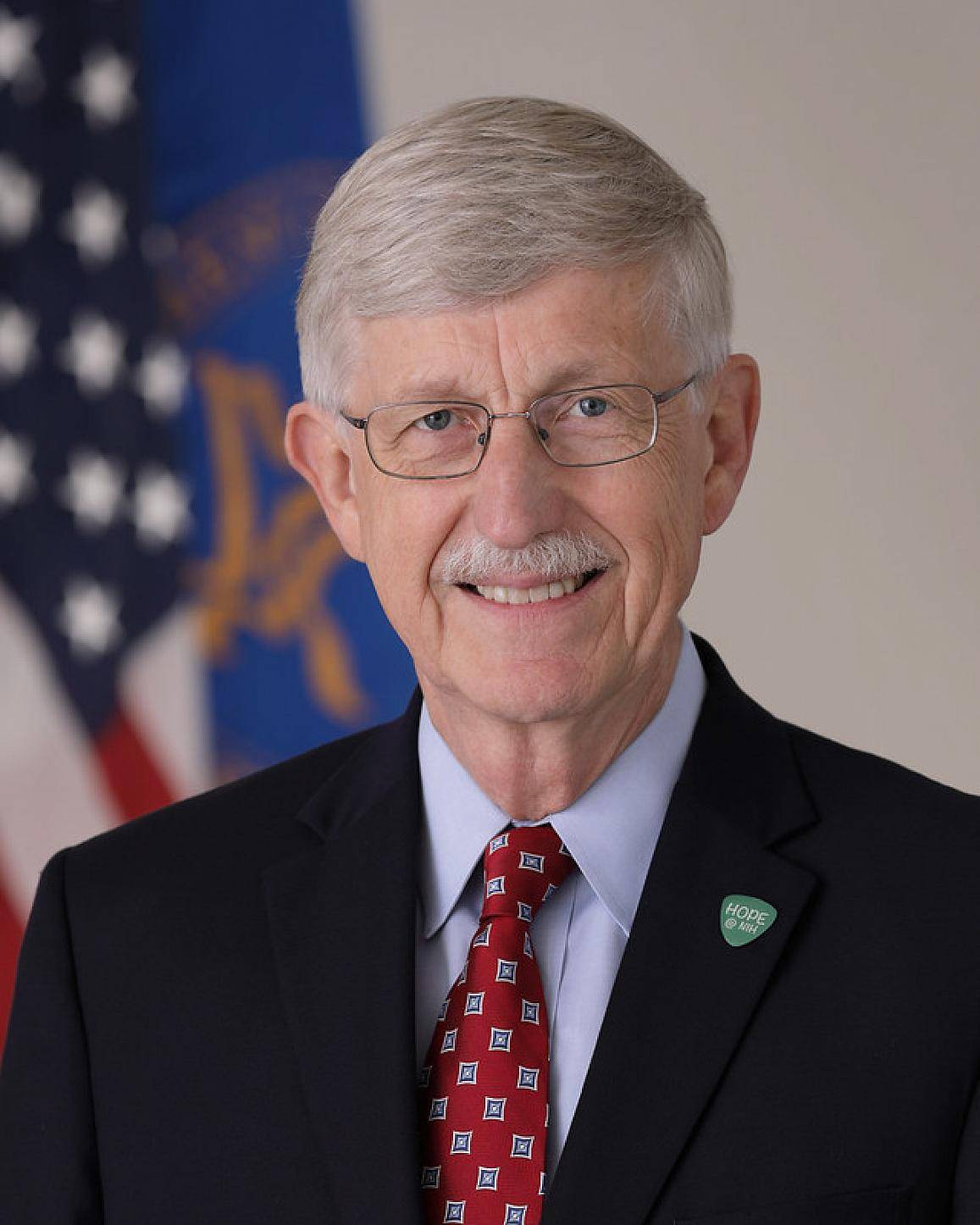Original title: Collins will step down as president of the National Institutes of health: the longest term and return to the scientific community
The longest serving president of the National Institutes of Health (NIH) in more than 50 years is about to step down.
According to the news released on NIH's official website on October 5 local time, Francis Collins announced on the same day that he decided to end his term of office as president of NIH at the end of this year. According to the press release on the official website, Dr. Collins is the president appointed dean with the longest term of NIH and has served three U.S. presidents for more than 12 years.

Francis Collins, President of the National Institutes of health. NIH official website
NIH is the largest and highest level biomedical research and funding institution in the world. "It's an incredible honor to lead this great organization for more than ten years." Collins said that he loved this organization and his colleagues here so much that it was still difficult to make the decision to resign after close consultation with his wife Diane Baker and his family.
"I am proud of our achievements. However, I fundamentally believe that no one should work in this position for too long. Now it is time to introduce a new scientist to lead the future of NIH." Collins told Science magazine that if Biden did not ask him to stay in office, In part, in order to maintain the role of NIH in combating the coronavirus pandemic, he may resign in January this year.
Elias Zerhouni, Collins's predecessor, said, "he presided over the most wonderful part of our covid-19 response." at present, the new crown vaccine has made an important contribution to the covid-19 pandemic and become one of the most important tools. But Collins humbly said, "I don't think my role is crucial."
Collins said, "I am most grateful and proud of NIH staff and the whole scientific community. Their extraordinary commitment to life-saving research brings hope to the American people and the world every day."
Collins is a medical geneticist. On August 17, 2009, 12 years ago, he was appointed by then President Barack Obama and approved by the U.S. Senate as the 16th president of NIH. In 2017, trump asked him to continue his presidency; Biden also wants him to remain president in 2021.
Before becoming NIH director, Collins served as director of the National Human Genome Institute (NHGRI) under NIH from 1993 to 2008, where he led the international human genome project, which peaked in April 2003 with the completion of the human genome sequence map.
During his tenure, he strengthened his position and launched the "big science" project, which he considered to be his greatest initiative, including brain mapping, "cancer landing on the moon program", "all of us" precision medicine research, and a new center focusing on transforming basic research into treatment.
"Few people can live close to what Dr. Collins achieved when he took charge of NIH," said Xavier Becerra, Secretary of health and human services, "Under three presidents, in three distinct chapters of American history, we need an extraordinary person to meet the biggest scientific challenges facing our country. From mapping the human genome to fighting the most destructive pandemic in a century, Collins Bosch is proficient in scientific breakthroughs, saving countless lives, releasing innovation and benefiting future generations."
Science magazine commented that the scientist who can play guitar and ride a motorcycle covered up his political wisdom with approachable charm and helped persuade Congress to expand the budget of the National Institutes of health after 10 years of stagnation. NIH's official website also mentioned that during his 12-year leadership period, NIH's budget increased by 38%, from $30 billion in 2009 to $41.3 billion in 2021.
According to the press release on NIH's official website, Collins has proposed and established bold measures, from basic science to transformation science, and then to key projects, to solve some of the most urgent health problems faced by Americans, including Alzheimer's disease, cancer, opioid use disorder, rare diseases and covid-19 pandemic.
In terms of policy, Collins has solved many long-standing problems hindering the development of science. He supports policies and activities to deal with sexual harassment and structural racism, strengthen the accountability and transparency of clinical trials, and ensure extensive data sharing. He has always been an advocate of young researchers and implemented many policies to enable them to succeed in a highly competitive research environment Work.
However, Collins also led the NIH to conduct a controversial investigation on hundreds of scientists, most of whom are of Chinese descent. It is said that they did not report their relations with foreign countries.
Shirley tilghman, a molecular biologist at Princeton University, said, "from winning congressional support for increasing the budget to supporting young researchers, Collins is a very successful director of NIH on many levels." Zerhouni also agreed with this view. "He is very effective. I give him a +."
Collins has even won the respect of some of the fiercest critics. Michael Eisen, an evolutionary biologist at the University of California, Berkeley and editor in chief of eLife, believes that Collins's attention to big science cuts off the stable support for a single laboratory. However, in an interview with science in 2019, he said, "he is trying to do the right thing for the organization, he may be a bulwark against worse science. "
NIH's official website news release said Collins will continue to lead his research laboratory at NHGRI, which is committed to genomics, epigenetic and single cell biology to understand the causes and prevention of type 2 diabetes. His laboratory is also seeking to develop new gene therapies to treat Hutchinson Gilford premature aging, the most prominent form of premature aging.
The biomedical community will pay close attention to who Biden will nominate to succeed Collins. Collins personally said, "there are many exciting potential candidates, but if the next director of the National Institutes of health is a woman, I'll be happy. "
主营业务:website,cms,wap website

 扫一扫,关注我们最新消息
扫一扫,关注我们最新消息 